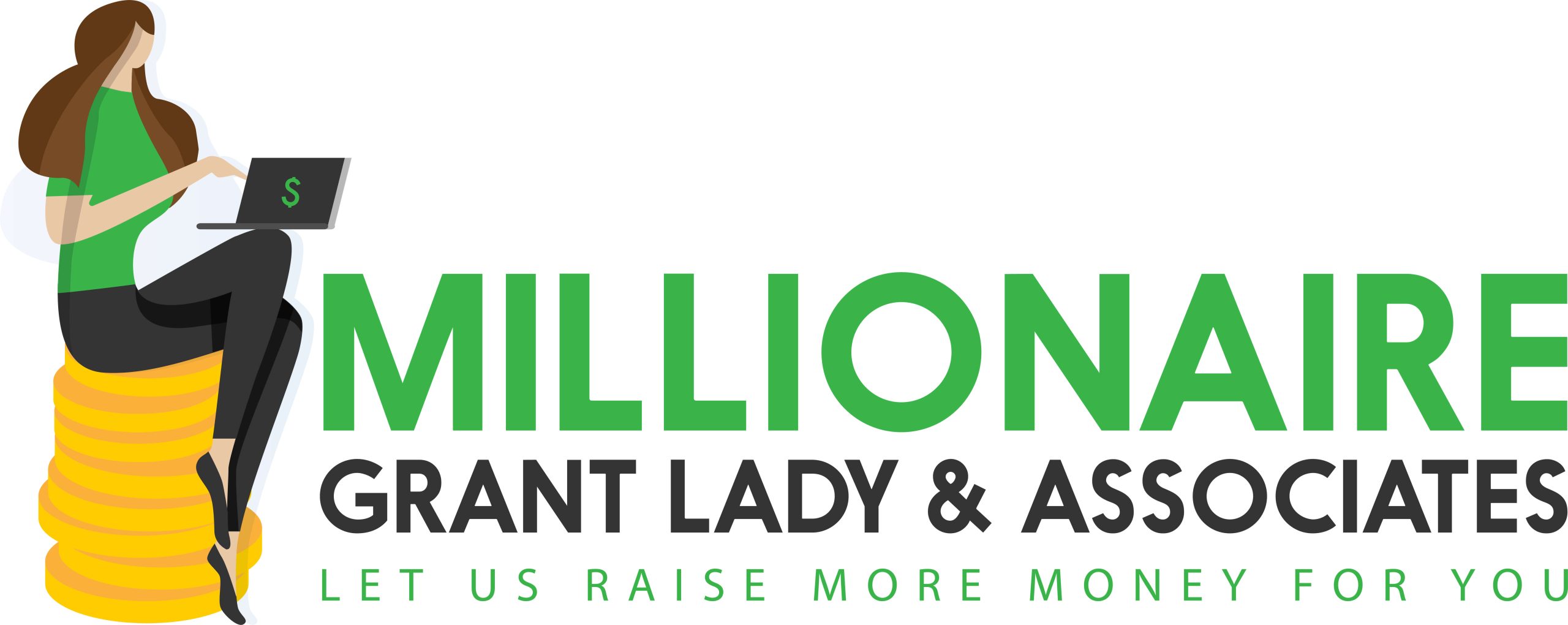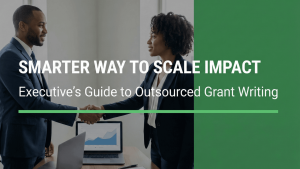Grant writing can be incredibly complicated. From identifying the right opportunities to tailoring your proposal to the funder’s goals in a way that is still true to your own mission to tracking down all the right attachments, there is a lot to consider.
I’ve been working on this blog for years, and I have still barely scratched the surface of what goes into crafting a successful grant proposal…and then another one…and then another one.
My team is submitting and drafting new proposals daily, and we are constantly at different stages in the process for each client, from onboarding to final submission on a 20-page federal grant proposal. It’s a lot to keep track of, and I certainly couldn’t summarize it all in a single blog post.
However, there are several important things that remain consistent, regardless of your organization or the opportunities you are seeking.
I’d like to share a few of those tips with you, which may help in honing your own grant seeking strategy. As always, if you’re in need of further information, you can schedule a free call with us to discuss how we could help you to win big in the grant world.
Without further ado, here are 7 Winning Tips to Write a Grant Proposal
Tip #1: Understand Why Grant Writing is Effective
As any seasoned nonprofit veteran knows, fundraising is what fuels everything else. If you run out of money, you can’t help people. There are many ways to raise funds, from identifying individual donors to hosting events to targeting grant opportunities, and financially healthy nonprofit organizations often rely on a diversified funding stream, because circumstances are always changing. In case you forget, I’ll add one more: write a grant.
Incorporating a consistent nonprofit grant seeking strategy into fundraising efforts promotes sustainability over time. Even though grants are competitive, and you won’t win them all, identifying promising opportunities and applying throughout the year ensures that you always have a chance to secure funding, increase your capacity, and serve more people.
If you partner with a proven grant consultant who can help you to focus your efforts only on the grant applications that are the best fits and give you the best chances to succeed, your potential return on investment increases exponentially. Grant writing isn’t free.
Either someone on your staff is doing it, or you’re paying someone else to do it for you. However, it can be incredibly beneficial, so long as your process is effective.
Tip #2: Identify the Essential Elements of a Winning Grant Proposal
A winning proposal breaks down into three major categories:
2.1: A Compelling Nonprofit Narrative
Most nonprofits know: your story is everything. Good data are important, but remember that reviewers are people, and people want to feel that they are contributing to something important.
Move them into action by connecting them to the impact you’re having on real-life people. A good grant should read more like your favorite story than like a science or math textbook.
The best narratives are part: “Topic” for Dummies (with data on why the issue is important), business plan for how you will address the need, Shark Tank pizzaz of why they should fund you over everyone else, and a good book.
2.2: Realistic, Approved Budgets
When you submit your budgets, whether for a program, a capital campaign, or your organization, make sure that your use of funds is clear, explainable, and reasonably allocated. Foundations require wise stewardship of their money.
2.3: Strengthening Supporting Materials
From client testimonials to annual reports to financial documents, additional attachments need to align with the vision of the proposal.
Fulfill their requirements, but don’t submit any extraneous information.
Tip #3: Prepare to Win Before You Write
Long before submission, whether internally or in collaboration with a grant consultant, you need to decide which grant opportunities are right for you.
There’s no point putting in effort for a grant that doesn’t fit what you’re doing. Trying to force your program into an opportunity that isn’t suited for it will only lead to frustration. You will also need to gather essential information, including data and financial documentation. Lastly, you will need to prepare for an extended timeline.
Grant funds are not instant money, which is why it may be prudent to apply for several grants within a period of time. Grant writing is not a quick path to lots of money. View it as a long-term overall strategy.
Tip #4: Use Effective Writing Techniques
For successful proposals, data and storytelling work hand-in-hand.
The reviewer is given a clear understanding of the emotional stakes of your work and numerical context of your impact within your community. The more clear, concise, and straightforward you can be, the better. Experienced grant writers know how to synthesize numbers and narratives seamlessly.
Tip #5: Avoid Common Mistakes
There are many ways to unintentionally undercut your own efforts in grant writing, from overusing jargon to submitting budgets with accounting errors to misaligning your priorities and the funder’s.
Most of these mistakes are easily avoidable with thoughtfulness and experience, but if you’re new to the process, you may not realize the mistake you’re making. It’s always good to have a seasoned eye look over your proposals prior to submission, particularly with online portals, which often lead to technical issues and hidden hurdles to overcome.
Tip #6: Understand What Grant Funders Really Look For
As I’ve said, funders are people. They want to feel good about the proposals they approve as much as you want to feel good about the programs you offer.
Demonstrating capacity and sustainability in your application is key to winning their trust. Including impressive evaluation metrics also helps, as does developing relationships with funders outside of grant cycles. The more familiar a funder is with your work, your staff, and your mission, the more likely they are to partner with you.
Tip #7: Improve Your Grant Writing Skills
Good news: you’re already doing this one! Everyone who contributes to my team and my blog has grant winning experience and excellent writing skills. By reading this post, you’ve already learned more than most people ever will about the intricacies of how to find grants.
But you don’t have to stop here.
There are classes on effective grant writing processes and training opportunities and free resources all around you that can help to put you in the best position to succeed. Subscribe to my free newsletter if you want tips delivered directly to your inbox. Attend a seminar on fundraising and grant funding with an expert in the field. Learn how to use Candid or other resources to start looking for opportunities that fit your nonprofit’s needs.
Go from a Good Grant Proposal … to Great: Work with Us
Best of all would be to work directly with a proven grant consultant who can help you to identify exactly what your next grant winning steps might be, and the easiest way to do that is to schedule a free consultation.
We are always looking for new clients committed to doing good work in the world, and we’d love for you to be our next success story.



